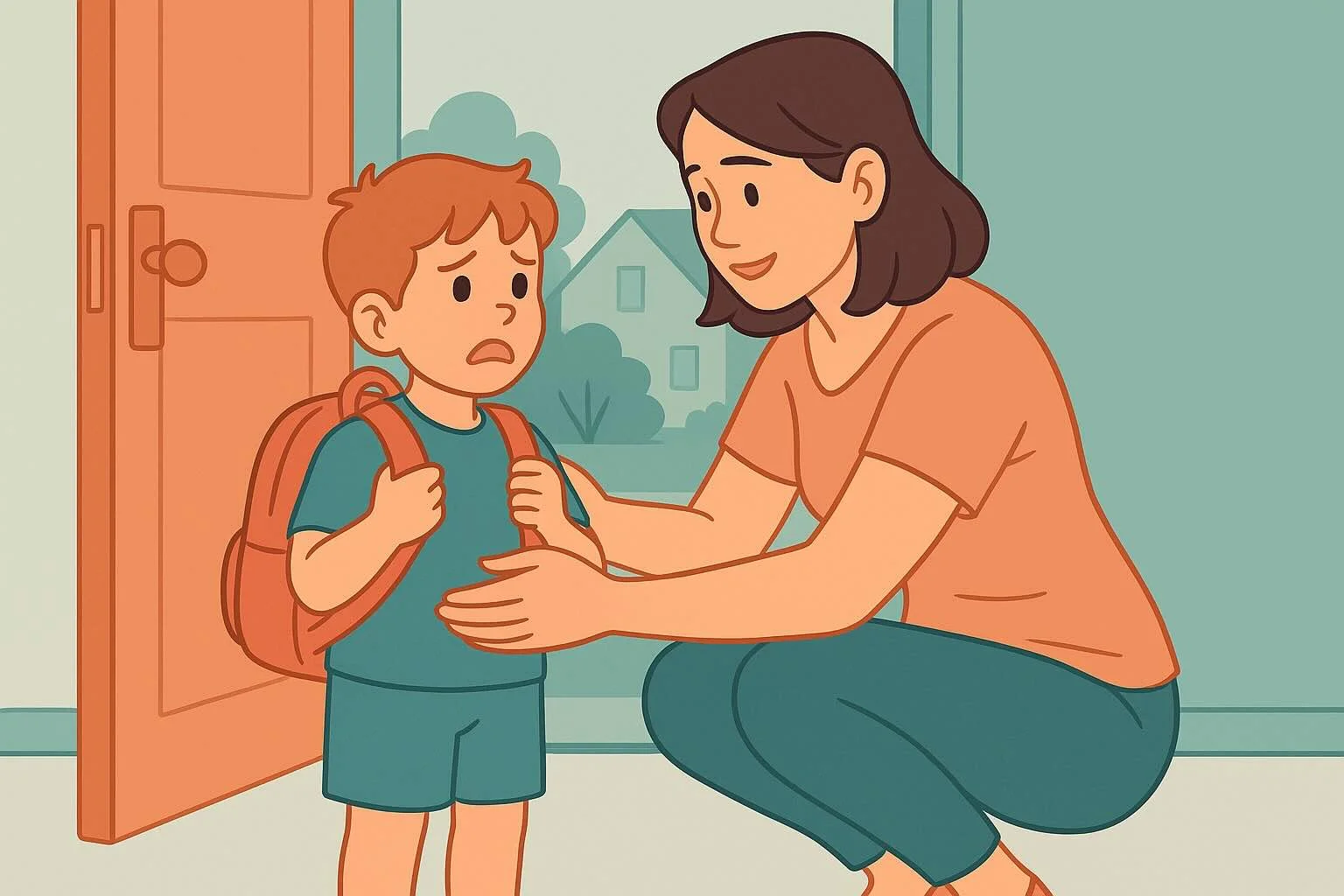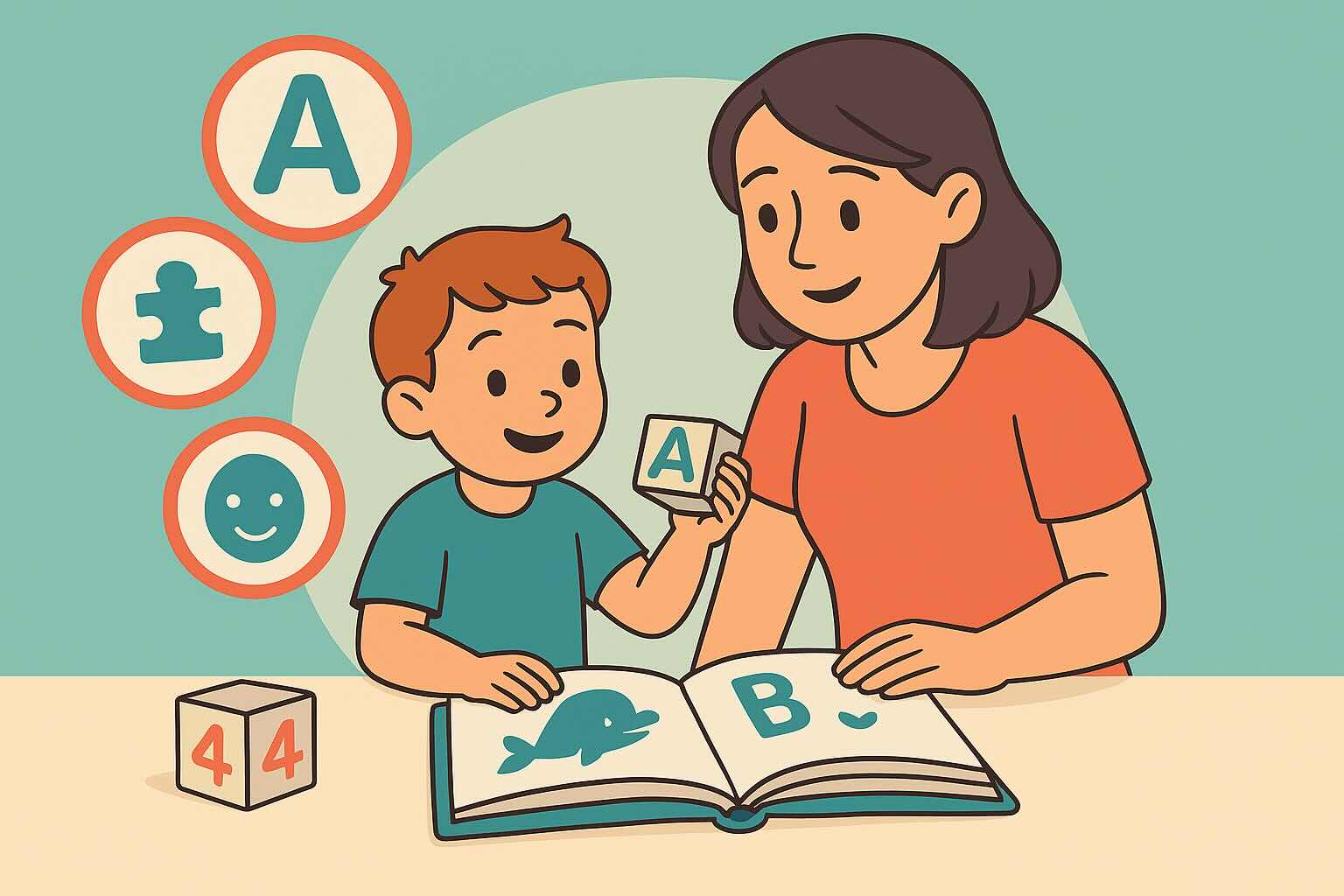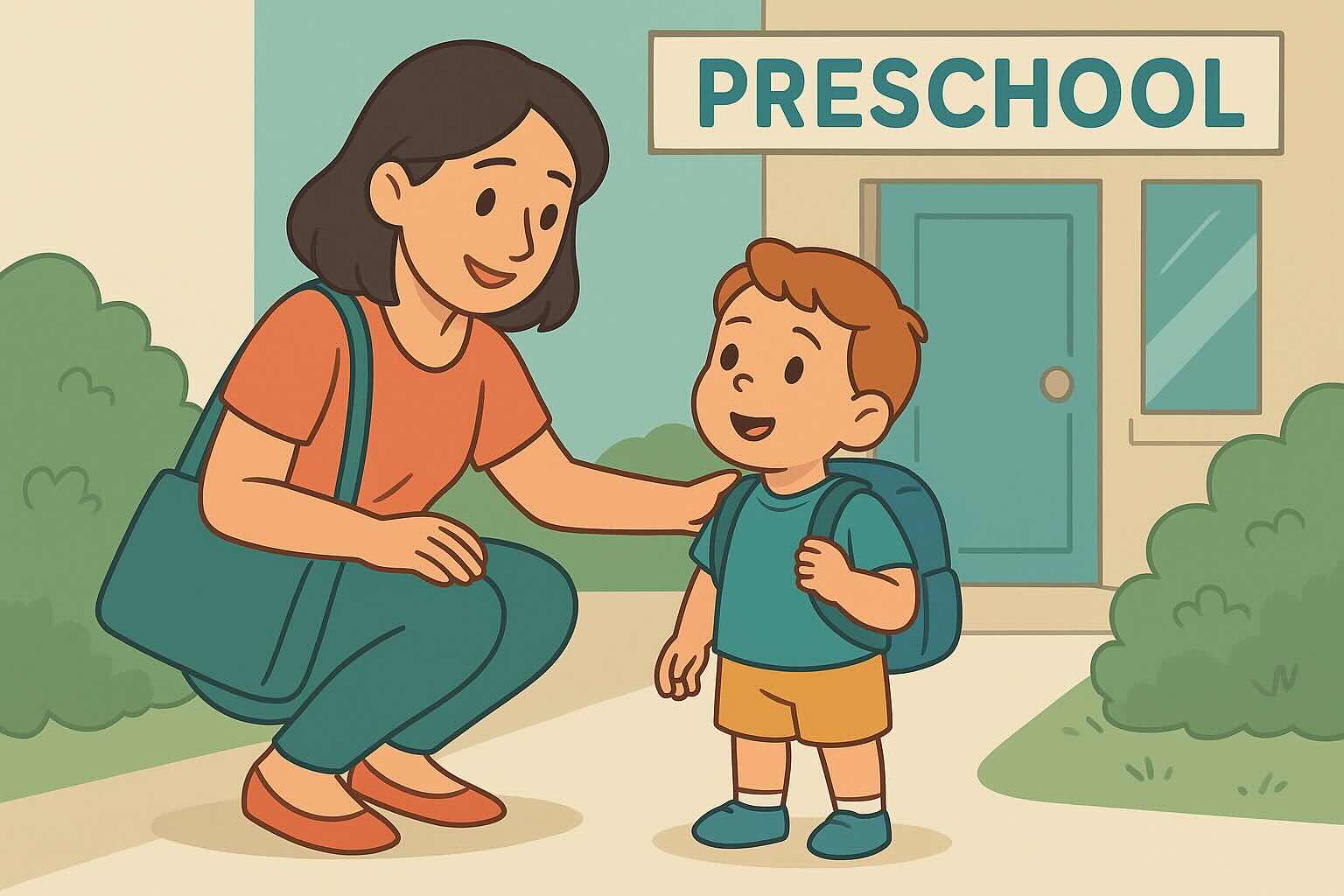New Baby Sibling: 11 Ways to Turn Jealousy Into Love


Welcoming a new baby is one of life's greatest joys—and for your older child, it can feel like their world has been turned upside down. Research shows that 90% of children experience some behavioral changes when a new sibling arrives, but with thoughtful preparation and ongoing support, most children develop loving sibling relationships within 3-6 months.
This comprehensive guide provides evidence-based strategies from family psychology research and sibling development experts. You'll learn how to transform this major family transition from a source of rivalry and stress into an opportunity for growth, empathy, and family bonding.
For related challenges, also check out our routine changes guide, moving with children guide, starting school preparation, and family visit planning for additional transition support.
What You'll Learn in This Guide
- The Psychology of Sibling Adjustment - Why becoming a big sibling feels overwhelming and how children adapt
- Age-Specific Preparation Strategies - Different approaches for 3-year-olds vs. 7-year-olds
- The Pregnancy Preparation Timeline - Month-by-month strategies for preparing your child
- Managing Sibling Rivalry and Jealousy - Evidence-based techniques for common behavioral challenges
- Building Positive Sibling Relationships - Fostering connection and reducing competition
- Special Circumstances - Strategies for adoption, multiples, and high-risk pregnancies
- Real Family Sibling Success Stories - How other families navigated the transition successfully
Estimated reading time: 13 minutes
Understanding the Big Sibling Transition
Your Child's Perspective: From Only to Older
For your child, the arrival of a sibling represents multiple simultaneous losses and gains:
What they're losing:
- Exclusive parental attention and immediate response to needs
- Their identity as "the baby" or "the only child"
- Predictable routines and family dynamics
- Physical space and potentially their own belongings
- The security of being the center of the family universe
What they're gaining:
- A playmate and lifelong relationship (eventually)
- Opportunities to develop empathy and caring skills
- Enhanced independence and "big kid" capabilities
- Pride in their new role and responsibilities
- Expanded family love and connection
The challenge is that losses feel immediate while gains develop over time, creating an initial period where the transition feels overwhelmingly negative to your child.
The Neuroscience of Sibling Rivalry
Sibling rivalry isn't just behavioral—it's neurobiological. When children perceive threats to parental attention and resources, their brains activate stress responses designed to ensure survival.
Normal sibling adjustment responses:
- Regression in previously mastered skills (toileting, sleeping, independence)
- Increased attention-seeking behaviors and testing boundaries
- Emotional volatility and more frequent meltdowns
- Physical aggression or rough play toward baby or parents
- Sleep disruption and changes in eating patterns
- Clinginess and separation anxiety
These responses are adaptive attempts to secure parental attention and care, not signs of poor character or inadequate preparation.
Individual Differences in Sibling Acceptance
Naturally nurturing children may embrace their big sibling role quickly and show protective instincts toward the baby.
Independent children might adjust well to decreased attention but struggle with family routine changes.
Sensitive or intense children may have stronger emotional reactions and need more support processing the transition.
Consider your child's temperament, current developmental stage, and attachment style when choosing preparation and support strategies.
Age-Specific Sibling Preparation Strategies
Ages 3-4: Concrete Understanding and Security Needs
Developmental considerations:
- Limited understanding of pregnancy timeline and baby development
- High need for routine predictability and parental attention
- Difficulty sharing and taking turns with attention and resources
- Strong attachment to being "the baby" of the family
Effective preparation strategies:
- Use simple, concrete language: "A baby is growing in Mommy's belly"
- Focus on what stays the same: "You'll still be our special [child's name]"
- Practice with baby dolls for gentle touching and helping behaviors
- Read books about becoming a big sibling with realistic scenarios
- Maintain consistent routines as much as possible throughout pregnancy
Common challenges:
- Difficulty understanding why family dynamics need to change
- Regression in toilet training or independence skills
- Increased clinginess and need for parental attention
- Confusion about timeline and when baby will actually arrive
Ages 4-5: Growing Independence and Helper Instincts
Developmental readiness:
- Better understanding of time and pregnancy progression
- Desire to be helpful and take on new responsibilities
- Beginning empathy and understanding of others' needs
- Pride in being "big" and capable
Preparation focuses:
- Explain baby development and what newborns need
- Teach specific helping skills (bringing diapers, choosing baby clothes)
- Practice quiet activities for when baby is sleeping
- Discuss how they can be a special big sibling
- Plan special one-on-one activities for after baby arrives
Common concerns:
- Worry about whether they'll still be important to parents
- Questions about baby's capabilities and when baby will be fun to play with
- Desire to help combined with uncertainty about how to help safely
- Excitement mixed with anxiety about increased responsibilities
Ages 5-7: Logical Thinking and Emotional Complexity
Advanced preparation needs:
- Understanding of pregnancy, birth process, and infant development
- Ability to anticipate changes and plan coping strategies
- Interest in baby care and learning nurturing skills
- Concerns about fairness and family resource allocation
Preparation strategies:
- Provide detailed information about pregnancy, birth, and newborn care
- Involve them in preparing baby's space and choosing supplies
- Discuss realistic expectations about newborn behavior and needs
- Plan special big kid privileges and responsibilities
- Address concerns about fairness and individual attention
Unique challenges:
- Understanding family stress and changes in parental availability
- Comparing themselves to baby's needs and receiving attention
- Balancing desire to help with need for their own childhood experiences
- Processing complex emotions about family growth and change
The Pregnancy Preparation Timeline
First Trimester (12-16 weeks): Initial Conversations
For ages 4-7, begin discussions around 12-14 weeks:
- "We have exciting news to share with you. Our family is going to grow—we're having a baby!"
- "The baby is very tiny right now, growing inside Mommy's belly."
- "You're going to be a big [brother/sister], which is a very special job."
For ages 3-4, wait until 16-20 weeks:
- Use simpler language and focus on immediate, concrete concepts
- Avoid detailed timelines that feel endless to young children
- Focus on the specialness of their upcoming role
Early preparation activities:
- Look at photos of when your child was a baby
- Read age-appropriate books about new siblings
- Begin conversations about what babies need and how families care for them
Second Trimester (16-28 weeks): Active Involvement
Increase involvement and preparation:
- Let them feel baby's movements and kicks
- Include them in prenatal appointments when appropriate
- Begin preparing baby's space together
- Practice baby care skills with dolls or stuffed animals
Skill building activities:
- Practice gentle touching and quiet voices
- Learn baby care basics (diaper changing, bottle holding)
- Develop special big sibling songs or stories
- Begin practicing independent skills (dressing, meal preparation)
Address emerging concerns:
- Answer questions honestly and age-appropriately
- Validate any worried feelings about family changes
- Emphasize their continued importance in the family
- Begin planning special big sibling privileges
Third Trimester (28-40 weeks): Final Preparations
Intensive preparation phase:
- Finalize birth plans and childcare arrangements
- Create special activities for labor and delivery period
- Pack hospital bag with comfort items for older child
- Practice new routines and schedule changes
Emotional preparation:
- Discuss birth process in age-appropriate detail
- Prepare for possibility of early or delayed arrival
- Plan first meeting between older child and baby
- Address any remaining fears or concerns about the transition
Managing Sibling Rivalry: The PEACE Method
P - Prepare for Regression and Behavioral Changes
Expect and normalize common behaviors:
- Temporary loss of previously mastered skills
- Increased need for attention and help with basic tasks
- Testing boundaries and challenging parental authority
- Emotional outbursts and difficulty with frustration tolerance
Supportive responses:
- "It's normal to feel different when big changes happen in families."
- "Your feelings are important, AND we still need to be gentle with the baby."
- "Some kids need extra help when they become big siblings—that's okay."
E - Empathize with Your Child's Experience
Validate their feelings without fixing or dismissing:
- "It's hard when baby needs so much attention."
- "You feel frustrated when you have to wait for me to help you."
- "Missing how things used to be makes sense—this is a big change."
Avoid common dismissive responses:
- "You should be happy about your new sibling."
- "Big boys/girls don't act like babies."
- "The baby needs me more than you do right now."
A - Acknowledge Their Unique Value
Reinforce their irreplaceable role in the family:
- "No one can be a big sibling like you can."
- "Baby is lucky to have you as their [brother/sister]."
- "You teach me so much about being patient and caring."
Celebrate big kid capabilities:
- "Look how well you can [specific skill]—babies can't do that yet!"
- "I love having conversations with you about [their interests]."
- "You're such a good helper when you [specific example]."
C - Create Special One-on-One Time
Protect individual attention:
- Schedule brief but consistent one-on-one time daily
- Include older child in baby care when safe and appropriate
- Use baby's sleep time for special activities together
- Ask visitors to spend time with older child, not just baby
Quality over quantity:
- 10-15 minutes of focused attention often more valuable than longer distracted time
- Follow their lead in choosing activities during special time
- Put away phone and focus completely on them
- Create traditions that are just for the two of you
E - Establish Clear Safety Boundaries
Non-negotiable safety rules:
- "I won't let you hurt the baby, and I won't let anyone hurt you."
- "Gentle touches only—show me how gentle you can be."
- "When you feel angry, you can tell me with words or ask for help."
Redirect aggressive impulses:
- Provide appropriate outlets for physical energy
- Teach alternative ways to express frustration
- Supervise all interactions between children
- Remove older child from situation if safety is at risk
Building Positive Sibling Relationships
The "Big Helper" Approach
Age-appropriate helping opportunities:
- Ages 3-4: Bringing diapers, throwing away dirty diapers, choosing baby's outfit from two options
- Ages 4-5: Helping with bath time (supervised), reading to baby, getting supplies during feeding
- Ages 5-7: Holding baby (while seated), helping with baby's tummy time, teaching baby about toys
Make helping feel special:
- "Baby is so lucky to have such a caring big [brother/sister]."
- "You're such a good teacher—look how baby watches you!"
- "I couldn't take care of baby as well without your help."
Creating Individual Identity and Shared Connection
Avoid comparisons between children:
- Focus on each child's unique qualities and interests
- Celebrate individual achievements without reference to sibling
- Avoid labeling one as "the easy baby" or "the difficult child"
- Ensure each child has their own special belongings and space
Build family identity:
- Create family traditions that include both children appropriately
- Take photos of positive sibling interactions
- Tell stories about how families care for each other
- Emphasize that families stick together and help each other
Handling Negative Feelings Toward Baby
When your child expresses wanting baby to "go away":
- "It sounds like you're feeling frustrated with all the changes."
- "Babies can't go away—they're part of our family now. AND I understand this feels hard."
- "What could help you feel better when baby is crying/demanding attention?"
Normalize ambivalent feelings:
- "Sometimes you love baby AND sometimes you feel annoyed—both feelings are normal."
- "It's okay to feel confused about having a sibling."
- "Growing families have lots of different feelings, and all of them are okay to have."
Special Circumstances and Complex Situations
Adoption and Blended Families
Additional considerations:
- Older child may have questions about why biological parents couldn't care for new baby
- Timeline might be less predictable than pregnancy
- Older child might worry about their own permanence in family
- Different preparation timeline depending on adoption process
Special preparation strategies:
- Use age-appropriate language about adoption and family formation
- Emphasize that both children are permanent, wanted family members
- Address questions about biological relationships honestly
- Focus on love and commitment as defining family rather than genetics
Multiples (Twins, Triplets)
Unique challenges:
- Even more dramatic change in family dynamics and parental attention
- Older child may feel particularly overwhelmed by multiple new siblings
- Logistics of care become significantly more complex
- Greater need for outside support and help
Enhanced preparation strategies:
- Begin preparation earlier in pregnancy (around 10-12 weeks)
- Emphasize the special nature of their role as big sibling to multiples
- Plan for extra support from family, friends, or hired help
- Create realistic expectations about decreased parental availability
High-Risk Pregnancy and Medical Complications
When pregnancy involves bed rest or hospitalization:
- Explain situation honestly in age-appropriate terms
- Maintain connection through video calls and special projects
- Arrange consistent, loving care for older child
- Create special activities they can do "for mom and baby"
Preparing for NICU or medical needs:
- Use simple, factual language about baby's needs
- Explain hospital visits and why baby might need special care
- Focus on how family will support baby together
- Prepare for delayed homecoming and adjusted expectations
When to Seek Professional Support
Red Flags After 2-3 Months
Persistent adjustment difficulties:
- Aggressive behavior toward baby that doesn't improve with consistent intervention
- Regression that significantly impacts daily functioning (persistent toileting accidents, extreme sleep disruption)
- Signs of depression: withdrawal, loss of interest in previously enjoyed activities, persistent sadness
- Extreme clinginess that interferes with basic family functioning
- Self-harm behaviors or statements about wanting to hurt themselves
- Inability to accept comfort or show affection toward family members
Family stress indicators:
- Parents feeling unable to meet both children's needs adequately
- Marital stress significantly impacting family functioning
- Older child's behavior creating safety concerns for baby
- Family isolation due to difficulty managing both children in public
Types of Support Available
Professional resources:
- Family therapists specializing in sibling relationships and family transitions
- Child psychologists for individual assessment and support
- Parent support groups for families with multiple children
- Lactation consultants who can help with nursing while managing older child
Community support:
- Playgroups for families with multiple children
- "Big sibling" classes at hospitals or community centers
- Mother's Day Out programs to provide individual attention opportunities
- Extended family and friend networks for additional support
Real-Life Sibling Success Stories
The Williams Family: Overcoming Sibling Aggression
"When baby Marcus arrived, our 4-year-old daughter Sophia became physically aggressive—hitting the baby, throwing toys, and having major meltdowns. I felt like I was failing both kids. We implemented the PEACE method consistently: preparing for regression, empathizing with her feelings, acknowledging her special role, creating one-on-one time, and establishing clear safety boundaries. It took about 6 weeks of consistent approach, but she gradually started showing affection toward Marcus. Now at 8 months, she's his biggest protector and helper. The key was staying patient through the hard phase and not taking her behavior personally."
The Chen Family: Managing a High-Risk Pregnancy
"I was put on bed rest at 28 weeks with our second baby, and our 5-year-old son David was confused and scared. He kept asking if the baby was going to die and if I was sick. We explained that sometimes moms need extra rest to keep babies safe, and we created special projects he could do from my bedside: making cards for the baby, organizing baby clothes, and reading books together. When baby Emma was born early and spent 3 weeks in NICU, David felt important being able to help daddy at home and visit baby in the hospital. He still talks about how he 'helped take care of baby Emma before she was even born.' The experience actually made him feel more connected to her."
The Rodriguez Family: Adopting a Second Child
"We adopted our daughter Mia when our son Carlos was 6. Unlike pregnancy, we had only 3 weeks' notice before placement. Carlos was excited but also worried about whether Mia would want to be part of our family and whether we'd love her as much as him. We focused on family identity: looking at photos of families formed through adoption, talking about how love grows (it doesn't get divided), and letting Carlos help prepare Mia's room. The first few months were challenging because Mia needed extra attention for attachment, but Carlos felt proud of being the 'experienced' family member who could show her how things worked in our house. Now they're inseparable."
Your 8-Week Sibling Preparation Action Plan
Weeks 1-2: Foundation Building and Assessment
- Begin age-appropriate conversations about the upcoming baby
- Assess your child's current emotional and developmental needs
- Start reading sibling-themed books together
- Observe your child's current behaviors and emotional patterns to track changes
Weeks 3-4: Active Preparation and Skill Building
- Involve your child in baby preparation activities (room setup, supply shopping)
- Practice baby care skills with dolls or stuffed animals
- Begin teaching gentle touching and quiet voice techniques
- Start discussing what babies need and how families care for them
Weeks 5-6: Routine Preparation and Emotional Processing
- Practice new routines that will be necessary after baby arrives
- Address any fears or concerns your child expresses about the baby
- Plan special one-on-one activities for after baby's arrival
- Begin preparing for your absence during labor and delivery
Weeks 7-8: Final Preparations and Support System
- Finalize childcare arrangements for labor and delivery
- Create comfort items and activities for hospital period
- Practice calming strategies for when baby cries or needs attention
- Prepare family and friends to focus attention on older child during early visits
Post-Baby Arrival: Ongoing Support and Adjustment
- Implement the PEACE method consistently for behavioral challenges
- Maintain special one-on-one time even if very brief
- Include older child in baby care when safe and appropriate
- Monitor adjustment and seek support if concerns persist beyond 8-12 weeks
Building Long-Term Sibling Success
The Foundation of Secure Sibling Relationships
Research shows that sibling relationships are among the longest-lasting human connections, often outlasting marriages and parent-child relationships. The foundation you build during this transition period affects their relationship for decades.
Key elements of positive sibling relationships:
- Mutual respect and understanding of individual differences
- Shared family identity and values
- Healthy conflict resolution skills
- Emotional support and advocacy for each other
- Balance between individual identity and sibling connection
Avoiding Common Long-Term Pitfalls
Comparison and competition:
- Celebrate each child's individual achievements without reference to siblings
- Avoid labels like "the easy one" or "the difficult one"
- Ensure each child receives individual attention regularly
- Model appreciation for different personality types and strengths
Unequal treatment:
- Be mindful of different needs rather than identical treatment
- Explain age-appropriate differences in rules and privileges
- Ensure both children feel equally loved and valued
- Address favoritism concerns openly and honestly
Parentification of older child:
- Appreciate help without making older child responsible for baby's care
- Maintain age-appropriate expectations and responsibilities
- Ensure older child has time for their own developmental needs
- Don't rely on older child as primary caregiver or emotional support
Developmental Benefits of Sibling Relationships
Social and Emotional Growth
Empathy development:
- Learning to recognize and respond to another's needs
- Understanding different perspectives and emotional experiences
- Developing compassion through daily caregiving observations
Conflict resolution skills:
- Negotiating shared resources and parental attention
- Learning compromise and problem-solving strategies
- Developing emotional regulation during interpersonal stress
Leadership and nurturing abilities:
- Taking responsibility for another person's wellbeing
- Teaching and sharing knowledge with someone less experienced
- Developing protective instincts and advocacy skills
Cognitive and Academic Benefits
Language development:
- Explaining concepts to younger sibling reinforces older child's learning
- Exposure to different developmental stages enhances understanding
- Increased verbal interaction and communication practice
Academic motivation:
- Modeling learning behaviors for younger sibling
- Pride in being the "teacher" or "expert"
- Enhanced sense of competence and capability
Key Takeaways: Your Sibling Success Guide
- ✅ Sibling rivalry is normal and affects 90% of families during the transition period
- ✅ Full adjustment typically takes 3-6 months with individual variation
- ✅ Regression in previously mastered skills is temporary and represents normal stress response
- ✅ Individual attention quality matters more than quantity during busy newborn period
- ✅ Safety boundaries are non-negotiable while empathy and validation are essential
- ✅ Age-appropriate involvement builds connection rather than resentment toward baby
- ✅ Professional support is available if adjustment difficulties persist beyond 8-12 weeks
- ✅ Sibling relationships are lifelong and benefit from strong early foundations
- ✅ Family growth brings challenges AND opportunities for emotional development
Remember: Becoming a big sibling is one of childhood's major developmental milestones. With patience, preparation, and realistic expectations, this transition can strengthen your family bonds and give your children a lifelong gift of sibling connection.
This article is based on family psychology research and sibling development studies. Individual experiences vary significantly based on child temperament, family circumstances, and support systems. Always consult with pediatricians or family therapists if sibling adjustment concerns significantly impact your family's daily functioning or wellbeing.
24/7 AI Parenting Assistant
Get instant, personalized advice with expert-curated parenting knowledge. Chat with your AI coach anytime, anywhere.

Routine Transition Planner
4-week method for implementing routine changes successfully with gradual strategies and resistance management techniques.
Frequently Asked Questions
Need personalized support?
RootWise's AI coach can provide tailored strategies for your specific situation, available 24/7 when you need it most.
Learn More About AI Coaching →



